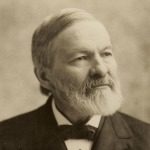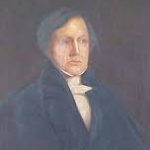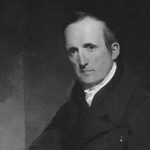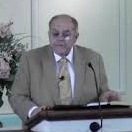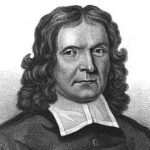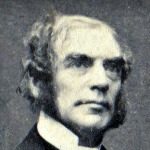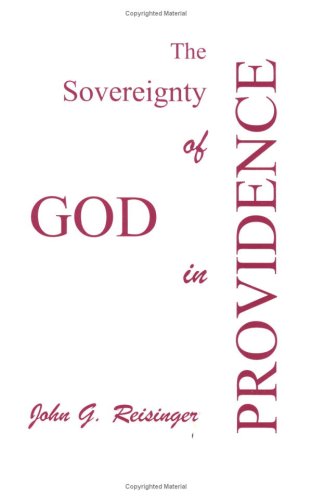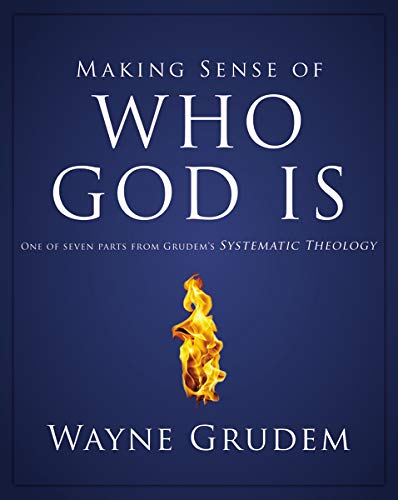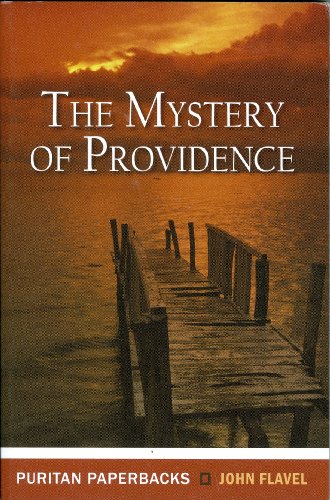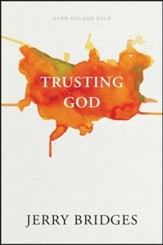Quotes about God-Providence
Trust the past to God’s mercy, the present to God’s love and the future to God’s providence.
God’s providence is His constant care for and His absolute rule over all His creation for His own glory and the good of His people.
Trusting God, 1988, p. 25. Used by permission of NavPress – www.navpress.com. All rights reserved. Get this book!
We may say that providence is God’s orchestrating all events and circumstances in the universe for His glory and the good of His people (Rom. 8:28).
More secret than diplomacy, deeper than the investigations of the wise, and mightier than all the kingly power, is the providence of God.
All honey would harm us; all wormwood would undo us – a composition of both is the best way to keep our souls in a healthy constitution. It is best and most for the health of the soul – that the warm south wind of mercy, and the cold north wind of adversity – do both blow upon it. And though every wind which blows, shall blow good to the saints; yet certainly their sins die most, and their graces thrive best, when they are under the frigid, drying, nipping north wind of calamity, as well as under the warm, nourishing south wind of mercy and prosperity.
There is no erratic power, or action, or motion in creatures, but that they are governed by God’s secret plan in such a way that nothing happens except what is knowingly and willingly decreed by Him.
How chill and withering is the breath of that noxious philosophy, that would detach our minds from viewing God in His works of Providence! The Christian who lives in this atmosphere, or on the borders of it, will be unhealthy and unfruitful in true works of righteousness. This malaria destroys all spiritual life.
Wisdom and power are the ground of the respect we give to men; they being both infinite in God, are the foundation of a solemn honor to be returned to Him by His creatures. If a man make a curious engine, we honor him for his skill; if another vanquish a vigorous enemy, we admire him for his strength; and shall not the efficacy of God’s power in creation, government, redemption, inflame us with a sense of the honor of His name and perfections! We admire those princes that have vast empires, numerous armies, that have a power to conquer their enemies, and preserve their own people in peace; how much more ground have we to pay a mighty reverence to God, who, without trouble and weariness, made and manages this vast empire of the world by a word and beck! What sensible thoughts have we of the noise of thunder, the power of the sun, the storms of the sea! These things, that have no understanding, have struck men with such a reverence that many have adored them as gods. What reverence and adoration does this mighty power, joined with an infinite wisdom in God, demand at our hands.
When I use the word "providence"…I mean that wonderful, strange, mysterious, unguessable way Yahweh has of ruling His world and sustaining His people, and His doing it, frequently, over, under, around, through, or in spite of the most common stuff of our lives or even the bias of our wills.
1 Samuel, Christian Focus Publications, 1988, p. 94. Get this book!
The longer I live, the more faith I have in providence, and the less faith in my interpretation of providence.
No one, not even the unredeemed, are ultimately outside the will of God (Pr. 16:4; Rom. 9:14-18; 1 Pet. 2:7-8). They are not forced to be lost, but choosing to reject God’s offer of mercy does not somehow free them from the control of God. Even their rejection has been included in the eternal plan of God. This is perhaps the worst part of it for them. In their attempt to be free from God by rejecting Him, even if at the cost of their own souls, they find that there is no such thing. The net of God’s providence includes even the vain attempt to be outside the net.
There is unquestionably a great mystery here as to how a holy God who cannot even look upon evil (Hab. 1:13) can work His will through evil, but that He does is the clear teaching of Scripture. If something could get outside the will of God, it would become a god unto itself and a rival to God. Such can never be the case. God alone is God; there is no other.
Providence, then, is the sovereign, divine superintendence of all things, guiding them toward their divinely predetermined end in a way that is consistent with their created nature, all to the glory and praise of God. This divine, sovereign, benevolent control of all things by God is the underlying premise of everything that is taught in the Scriptures.
How can all things be worked together by God for good? The answer is at hand. It is because God’s ultimate purpose is to make us like Christ. His goal is the complete restoration of the image of God in His child! So great a work demands all the resources which God finds throughout the universe, and He ransacks the possibilities of joys and sorrows in order to reproduce in us the character of Jesus.
The providence of God is the way in which He governs everything wisely, first for the glory of His own Name, and second for the ultimate blessing of His children.
The providence of God is like a Hebrew word – it can only be read backwards.
As a wise, skilled pharmacist mixes medicine, our heavenly Father wisely mixes exactly the right measure of bitter things and sweet, to do us good. Too much joy would intoxicate us. Too much misery would drive us to despair. Too much sorrow would crush us. Too much suffering would break our spirits. Too much pleasure would ruin us. Too much defeat would discourage us. Too much success would puff us up. Too much failure would keep us from doing anything. Too much criticism would harden us. Too much praise would exalt us. Our great God knows exactly what we need. His Providence is wisely designed and sovereignly sent for our good!
Let Him therefore send and do what He will. By His grace, if we are His, we will face it, bow to it, accept it, and give thanks for it. God’s Providence is always executed in the ‘wisest manner’ possible. We are often unable to see and understand the reasons and causes for specific events in our lives, in the lives of others, or in the history of the world. But our lack of understanding does not prevent us from believing God.
If trifles are vital parts of divine providence, what of evil? Evil is often vastly significant. The most important event which ever occurred was, in one aspect, horribly evil. The crucifixion of Jesus from the standpoint of the crucifiers was grotesquely wicked. Yet, even though the killing of Christ was atrocity itself, what event was so vital and its effects so beneficial as the death of Christ? If God’s providence does not include evil, it does not include the most important event which has ever taken place.
We may define God’s providence as follows: God is continually involved with all created things in such a way that He 1. keeps them existing and maintaining the properties with which He created them; 2. Cooperates with created things in every action directing their distinctive properties to cause them to act as they do; 3. Directs them to fulfill His purposes.
Systematic Theology, Zondervan, 1994, p. 315. Used by Permission. Get this book!
The decrees of God are the eternal plans of God whereby, before the creation of the world, He determined to bring about everything that happens. This doctrine is similar to the doctrine of providence, but here we are thinking about God’s decisions before the world was created, rather than His providential actions in time. His providential actions are the outworking of the eternal decrees that He made long ago.
Systematic Theology, Zondervan, 1994, p. 332. Used by Permission.
Get this book!
Simply to say that we are trusting in God instead of acting responsibly is sheer laziness and is a distortion of the doctrine of providence.
Systematic Theology, Zondervan, 1994, p. 335. Used by Permission.
Get this book!
[God’s] providence in time is as comprehensive as is His decrees from eternity.
He who complains of the weather, complains of the God who ordained the weather!
Let me encourage you to take those “if onlys” and draw a circle around them. Then label the circle, “The providence of God.” The Christian believes that God is greater than our “if onlys.” His providential hand encompasses the whole of our lives, not just the good days but the “bad” days too. We have the word accident in our vocabulary; He does not.
Taken from One Minute After You Die by Erwin Lutzer, Moody Publishers, 1997, p. 123-124, 130. Get this book!
It should come as no surprise of the God who supernaturally created the universe should choose at times to supernaturally intervene in it.
Divine providence is God’s preserving His creation, operating in every event in the world, and directing the things in the universe to His appointed end for them.
God the Father by John MacArthur and Richard Mayhue taken from Biblical Doctrine by John MacArthur and Richard Mayhue, copyright 2017, Crossway Books, a division of Good News Publishers, Wheaton Illinois 60187, www.crosswaybooks.org. Page 218.
The wonder of wonders to me is not just the miracle where God instantly invades and just interrupts and violates the flow of everything, to me the greater wonder is that God can take it all and still make it work for His will. That’s astounding to me. The diversity of an innumerable number of events, circumstances and attitudes that occur within the limited freedom of men and demons and God pulls it all together to accomplish exactly what He wants done. Incredible not only to conceive that it can be done but to make it happen. But that is precisely what God does. So that the world with what we assume to be an almost infinite number of random choices is doing nothing more than acting out that which is predetermined by God.
The Amazing Burial of Jesus – Part 2. The article originally appeared (http://www.gty.org/Resources/Sermons/2400_The-Amazing-Burial-of-Jesus-Part-2) at www.gty.org. © 1969-2008. Grace to You. All rights reserved. Used by Permission.
No one acts apart from the sovereign plan of God. Every choice, every act, every decision made by every human in the world, including the most evil, heinous behavior against the truth and against the Lord, God overrules and fits into His plan for His own ends and His own glory. There’s not one rebellious molecule in the universe that operates independently of His purpose.
Table Talk on Trouble and Triumph, Part 1. The sermon originally appeared at: (https://www.gty.org/library/sermons-library/42-270/table-talk-on-trouble-and-triumph-part-1) at www.gty.org. © 1969-2008. Grace to You. All rights reserved. Used by Permission.
How in the world can God take every decision, every act, with all its implications by every human being on the planet, leaving them a certain amount of limited autonomy to make their own choices for which they are culpable, and overrule all of that so that it all comes together perfectly into the tapestry of His own divine purpose? And that with all the contingencies – incalculable, infinite contingencies – everything ends up exactly the way God designed it to end up before He created anyone. That is a massive, massive mind and inexplicable, incomprehensible power.
Table Talk on Trouble and Triumph, Part 1. The sermon originally appeared at: (https://www.gty.org/library/sermons-library/42-270/table-talk-on-trouble-and-triumph-part-1) at www.gty.org. © 1969-2008. Grace to You. All rights reserved. Used by Permission.
Those who seek to control their own lives will inevitably be frustrated. A confident trust in God’s providence is foundational to contentment.
The doctrine of concurrence affirms that God directs, and works through, the distinctive properties of each created thing, so that these things themselves bring about the results that we see. In this way it is possible to affirm that in one sense events are fully (100 percent) caused by God and fully (100 percent) caused by the creature as well. However, divine and creaturely causes work in different ways. The divine cause of each event works as an invisible, behind-the-scenes, directing cause and therefore could be called the “primary cause” that plans and initiates everything that happens. But the created thing brings about actions in ways consistent with the creature’s own properties [which God unchangeably gave and sustains], ways that can often be described by us or by professional scientists who carefully observe the processes. These creaturely factors and properties can therefore be called the “secondary” causes of everything that happens, even though they are the causes that are evident to us by observation (Wayne Grudem and Jeff Purswell).
Bible Doctrine: Essential Teachings of the Christian Faith, Zondervan, www.zonderan.com, 1999, p. 145.
God sometimes takes joy in using ordinary things for extraordinary purposes (Neil S. Wilson).
Taken from The Handbook of Bible Application by Neil S. Wilson). Copyright © 1992. Page 440. Used by permission of Tyndale House Publishers, Inc. All rights reserved.
The providence of God is the unceasing activity of the Creator whereby, in overflowing bounty and goodwill, He upholds His creatures in ordered existence, guides and governs all events, circumstances, and free acts of angels and men, and directs everything to its appointed goal, for His own glory.
Providence, The New Bible Dictionary, IVP, 1962, p. 1050-1051.
Get this book!
We must interpret the mysterious providences of God not by reason or observation, but by the Word.
Providences are long chains with many links in them. If one link were missing, the event would fail. But it is God’s chain and God’s plan. The thing is fixed. The outcome is not doubtful.
Nothing whatever, whether great or small, can happen to a believer, without God’s ordering and permission. There is no such thing as “chance,” “luck” or “accident” in the Christian’s journey through this world. All is arranged and appointed by God. And all things are “working together” for the believer’s good.
It’s not about our worthiness to receive these promises; it’s about the integrity to God to always keep His word. If God would fail to keep His promises, He would have more to lose than you.
Upon some points a believer is absolutely sure. He knows, for instance, that God sits in the stern-sheets of the vessel when it rocks most. He believes that an invisible hand is always on the world’s tiller, and that wherever providence may drift, Jehovah steers it. That re-assuring knowledge prepares him for everything.
Depend upon it, however, let men rebel against this truth as they will, that God has determined the end from the beginning. He has left no screw loose in the machine, He has left nothing to chance or accident.
Everything that has moved or shall move in heaven, and earth, and hell, has been, is, and shall be according to the counsel and foreknowledge of God, fulfilling a holy, just, wise and unalterable purpose!
Providence is wonderfully intricate. Ah! You want always to see through Providence, do you not? You never will, I assure you. You have not eyes good enough. You want to see what good that affliction was to you; you must believe it. You want to see how it can bring good to the soul; you may be enabled in a little time; but you cannot see it now; you must believe it. Honor God by trusting Him.
[Providence] insists that everything (yes, everything) that happens does so because God wills it to happen, wills it to happen before it happens, wills it to happen in the way that it happens. Such a view signals immediately that history is not arbitrary or fortuitous; neither is it “simple determinism,” “Que Sera, Sera” or, “whatever will be, will be,” as though our own choices and involvement have no relevance whatsoever, a fatalistic view more reflective of Islam than biblical Christianity.
It only requires one errant molecule in the universe to question the certainty of the future and unless we can be assured that everything is submissive to God’s sovereign rule, there is always the possibility that the future may not be as we have believed it to be.
Providence has wider issues in mind than merely our personal comfort or gain.
God loves details! It is in the details that we discern His hand of providence – ruling, directing, providing, sustaining, preventing, surprising. What may look catastrophic from one point of view will appear from another angle to be the outworking of a plan in which God is in full control.
Throughout the Bible, bleak situations provide the stage for God’s intervention in the lives of His people. We trust in a God who provided redemption in Jesus Christ when circumstances looked as if no redemption was possible. The events of our lives are the scene of His providential and redemptive activity. Nothing occurs by chance, takes God by surprise, or exceeds His power to handle. This is the foundation of trust.
God is working behind the scenes to accomplish His purpose. Nothing occurs in our lives by randomness or chance. Seemingly small and insignificant decisions serve His purpose for our lives. We think nothing of day-to-day encounters, so-called accidents of history, but God uses ordinary events to advance His purpose.
Trusting God’s providence means believing that God will use a string of seemingly unrelated events to accomplish His good purpose. We, of necessity, make decisions that seem prudent at the time, but we are completely unaware of how those decisions will play out.
Once in a while, God advances His kingdom with a big splash on the stage of history, but, more often than not, He increases His glory through the quiet, persistent deeds of gratitude and kindness that never make the newspaper.
The universal sovereign rule of God with a view towards the incarnation which God preserves and governs all His creatures and their actions to the effect where our lives are not ruled by chance or fate, but according to the purposes of God.
In the infinite wisdom of the Lord of all the earth, each event falls with exact precision into its proper place in the unfolding of His divine plan. Nothing, however small, however strange, occurs without His ordering, or without its particular fitness for its place in the working out of His purpose; and the end of all shall be the manifestation of His glory, and the accumulation of His praise.
Quoted in: TULIP, The Five Points of Calvinism in the Light of Scripture by Duane Edward Spencer, Baker, 1979, p. 15.
Adam the sinner furthered the purposes of God to the same degree as Adam the righteous… What Adam aimed to do and what Adam actually managed to do are not the same. In a different way, but in the same degree, Adam carried forward the purpose of God. Adam’s act was sinful because he did not aim to please God. His motive was wrong, and God judged him for it. But God meant to use even that evil to advance His own glory.
God has many ways that He might use to achieve His ends but His wisdom determined the best way to accomplish them.
Beware of that practical atheism which excludes God from His own world; which excludes Him from your individual history. He is not only present in His created universe, but He is as much in personal events of life, shaping, guiding, overruling each and all.


